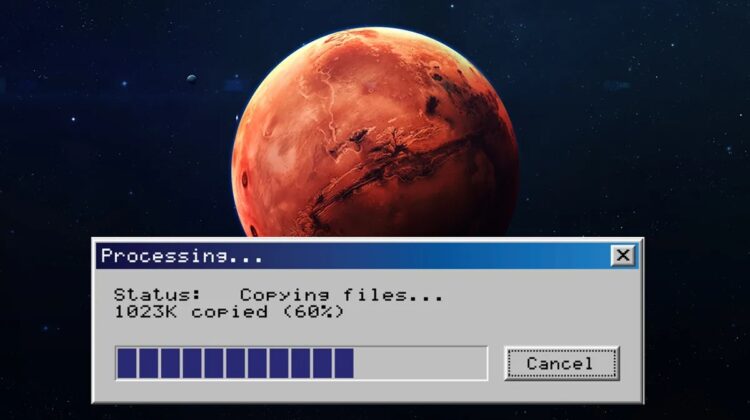
Fingers crossed they skip Vista. And XP. And Windows 8.
The Mars Advanced Radar for Subsurface and Ionospheric Sounding (MARSIS) instrument on the European Space Agency’s Mars Express spacecraft is due to get a software update that will remove the instrument’s prior operating system, Windows 98.
The software upgrade is anticipated to breathe fresh life into the spacecraft that discovered water hiding beneath Mars’ south pole over two decades ago. Though it’s conceivable that was an illusion, the orbiter is one of the ESA’s most successful programs, allowing us to study Mars’ past and present like never before. The MARSIS sensor will be able to view under the surfaces of Mars and one of its moons, Phobos, in unprecedented detail thanks to the software upgrade.
“After decades of fruitful science and a good understanding of Mars, we wanted to push the instrument’s performance beyond some of the limitations imposed when the mission began,” Andrea Cicchetti, MARSIS Deputy PI and Operation Manager at INAF, who led the upgrade development, said in a press release.
The spacecraft shoots low-frequency radio waves down towards Mars, and scientists may map the surface and structures underneath it up to a few kilometers deep by analysing the reflected signals. The upgrade is designed to improve the orbiter’s signal reception and data processing.
“Previously, we depended on a complicated approach that saved a lot of high-resolution data and quickly filled up the instrument’s on-board memory to investigate the most critical characteristics of Mars, and to study its moon Phobos at all,” Cicchetti stated.
“By removing unnecessary data, the new program allows us to run MARSIS for five times as long and cover a far bigger region with each pass.”
The orbiter will continue its mission, exploring the Martian subsurface and searching for evidence of water.
“The new software will allow us to explore these regions in high resolution more quickly and thoroughly, confirming if they are home to new sources of water on Mars.” “Colin Wilson, an ESA Mars Express scientist, offered his voice.
“It’s almost as though Mars Express had a fresh new instrument on board over 20 years after launch.”

Leave a Reply